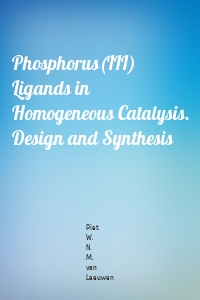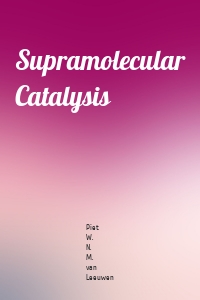Piet W. N. M. van Leeuwen
3 кн.
Phosphorus(III) Ligands in Homogene...
Over the last 60 years the increasing knowledge of transition metal chemistry has resulted in an enormous advance of homogeneous catalysis as an essential tool in both academic and industrial fields. Remarkably, phosphorus(III) donor ligands have played an important role in several of the acknowledged catalytic reactions. The positive effects of phosphine ligands in transition metal homogeneous catalysis have contributed largely to the evolution of the field into an indispensable tool in organic...
| Автор | Piet W. N. M. van Leeuwen |
Homogeneous Catalysts
This first book to illuminate this important aspect of chemical synthesis improves the lifetime of catalysts, thus reducing material and saving energy, costs and waste. The international panel of expert authors describes the studies that have been conducted concerning the way homogeneous catalysts decompose, and the differences between homogeneous and heterogeneous catalysts. The result is a ready reference for organic, catalytic, polymer and complex chemists, as well as those working in...
| Автор | Piet W. N. M. van Leeuwen |
Supramolecular Catalysis
In the past few years, supramolecular chemistry has led to new approaches in homogeneous catalysis. While host-guest chemistry had already found applications in catalysis as a result of the pioneering work carried out by Professor Ronald Breslow and Nobel prizewinner Professor Jean-Marie Lehn that began some 40 years ago, the construction of catalysts by supramolecular forces has only recently become a powerful tool. This development paves the way for large numbers of new potential catalysts...
| Автор | Piet W. N. M. van Leeuwen |




